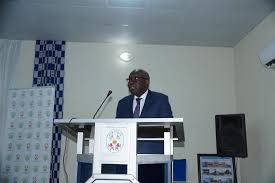Ministers from Togo, Benin, Burkina Faso, Côte d’Ivoire, and Ghana have signed a landmark agreement to strengthen both national security and refugee protection in West Africa. The joint declaration, signed on July 4, 2025, in Lomé, Togo’s capital, marked the conclusion of a two-day ministerial meeting on regional cooperation and forced displacement.
Known as the Lomé Declaration, the document outlines key commitments by the five governments to improve the protection of refugees while addressing growing security challenges. The agreement was the result of over a year of regional consultations supported by the United Nations High Commissioner for Refugees (UNHCR). It comes as the Sahel region continues to face a deepening humanitarian crisis and escalating insecurity.
The declaration includes practical measures such as reinforcing the principle of non-refoulement—which prohibits the forced return of refugees to dangerous situations—creating simpler refugee status recognition procedures, and ensuring access to healthcare, education, and legal protection for displaced persons. It also calls for stronger coordination between the five countries, especially for managing nomadic refugee populations.
Regional leaders at the event called the declaration a turning point for balancing state security priorities with international human rights obligations.
Kodjo Adedze, President of Togo’s National Assembly and representative of the Togolese government at the ceremony, said: “The Lomé Declaration calls us to action. Let it be a flame that lights our steps, a vow we carry in our hearts and in our deeds.”
Barrie Freeman, Deputy Special Representative of the UN Secretary-General for West and Central Africa (UNOWAS), praised the regional cooperation. “We reaffirm our commitment to better human security for refugees and host communities,” she said, noting that shared efforts are essential to address the interconnected threats of violence, poverty, and forced migration.
The initiative, launched in March 2024, was designed to tackle the shared challenges faced by these five coastal West African states as a result of worsening conditions in the Sahel. As militant attacks and inter-communal violence spread, countries on the Gulf of Guinea’s northern frontier have increasingly been hosting displaced populations fleeing violence in Burkina Faso, Mali, and Niger.
West Africa currently hosts more than 1.4 million refugees and asylum seekers, with many of them seeking safety in the southern coastal countries. However, national governments have often struggled to manage this influx alongside growing concerns over cross-border threats and limited state capacity in remote areas.
The Lomé Declaration aims to serve as a guide for inclusive policy-making that protects refugees while also safeguarding national borders. It stresses the importance of involving local communities in hosting and integrating refugees and calls on signatory states to work closely with civil society and humanitarian actors.
According to the UNHCR, the signing of the Lomé Declaration represents one of the most ambitious regional efforts in recent years to harmonize humanitarian protection and national security in West Africa. It follows similar regional frameworks such as the Kampala Convention and the Global Compact on Refugees.
Togo’s Minister of Interior and Civil Protection, Calixte Batossie Madjoulba, who co-chaired the ministerial session, expressed optimism that the agreement would lead to real change on the ground: “This is not just a policy paper—it is a commitment to those who have lost everything.”
Looking ahead, each signatory country is expected to develop national action plans to implement the commitments made under the Lomé Declaration. Monitoring mechanisms and reporting frameworks will be established in partnership with international agencies to track progress and support accountability.
The declaration also includes provisions for cross-border cooperation to prevent statelessness, ensure the civil documentation of refugees, and address gender-based violence in displacement settings.
As instability in the Sahel continues to push thousands southward, the Lomé Declaration signals a unified front among West African states to protect vulnerable populations while upholding national sovereignty and regional stability.
